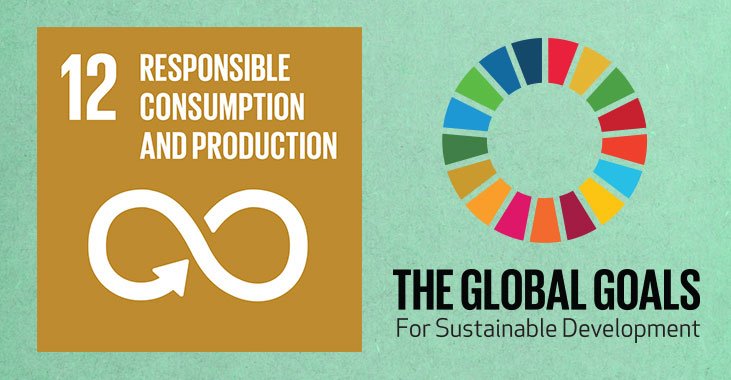|
Rohit Dhakal Agriculture and Forestry University,Nepal (Top 5 entries) |
 |
| Rohit Dhakal is currently studying B.Sc.Ag at Agriculture and Forestry,Nepal. He is from Bardiya district. He had worked as core member in Sustainable and Ethical Waste Management(SEW) project. He is actively involved in social works at University. He is member in The Eco Minions-TEM and Innovative Platform for Agricuture Transformation ( IPAT)-Nepal. He has been developing his writing skills via his blog https://dhakalrohit.wordpress.com/. His interest is in photography and cinematography.He has been able to publish a video about the biodiversity of AFU to support the International day for biodiversity, 22 May, 2016. | |

In a report by Rebecca Smithers (consumer affairs correspondent, UK) found that between 30% and 50% or 1.2-2 billion tones food around the world never makes it on to a plate. In UK as much as 30% of the vegetable crops are not harvested due to their failure to meet retailer’s exacting standards on physical appearance, it says while up to half of the food that is bought in Europe and US is thrown away by the consumers. There exists a tragedy of consumption among people.
I would like to start up with Darwin’s assumption that there exists a competition for survival; poverty can be viewed synonymously. The competition got its peak for the resources resulting the weaker ones to live low standard life and stronger ones with high life style. And now the term ‘sustainability’ has got its higher scope with the lately realization-that there may be the distinction of our own race if this condition prevails longer.
Here, today’s world faces the high population pressure and there has to be some way to feed all of them at present context ensuring the potentiality of the future same as now. Green revolution, though it’s been nowadays considered the wrong approach by some ecologists, at least, answered the quests of food insecurity related with the production vulnerability. So production shifted to more exploitation of the nature regardless of its side effects. High tech farming, high mechanization of farming system, genetic manipulation of the crops to increase the production has been the trade of developing countries.
As everything in this world has its pros and cons, the soil condition have to face the high mechanizations and the fertility reduction, over use of the fertilizer and the pesticides kills the beneficial organism, decrease the aeration and the microorganism activity- all of them showing the cumulative action on the reduction of the potentiality of the production. But the population factor becomes a great task for production system. In other hand, the people with unequal distribution of the food, its affordability and access can’t be said to be secured with food even at present time. Harmful economic systems viz. control over resources and income is based on military, political, and economic power that typically ends up in the hands of minority, who live well, while those at the bottom barely survive, if they do. As mainly the people with low income are generally found engaged in agricultural activities but they are the one who has to be hungry. Also the concentration over the thing like the biofuel has also reducing the chance to get food to the marginal people. As we can observe that poorer are getting poorer due to lack of the employment, resulted from illiteracy or low energy which resulted from bad nourishment or hunger only because of their fate – taking birth in slums.
Charles Darwin viewed the human capacity for bonding, cooperation and altruism as an essential factor in our successful evolution. In retrospect, how otherwise could we have gone from the experience majority of our history lived in roving bands of 20 people or less–to today’s mega cities: Shanghai or Mexico City? Why for example do we underestimate our genius for bonding and altruism – seemingly stuck in our earlier fears and games of competition and territoriality? Why do we over-reward such behavior and still assume in our economic textbooks and business schools that maximizing one’s individual self-interest in competition with all others is behavior fundamental to human nature?
So, responsible and integrative approach should be matter of concern to be worked on with. For the production sustainability countries should focus on dynamic efficiency (use of new production process to lower the cost of production) leading to increase the affordability of per unit food. Encouraging the research on the conservative farming techniques involving less exploitation and spoilage may help with our task of sustaining the environment. The surplus food, if prevented from being thrown up as waste in seas, through ethical and responsible channelization of distribution, then intra-generation equity may be achieved to some extent. The sustainability should address the both future and present with equal production and consumption potentiality. If and only if intra-generation equity is established, we have right to think about the inter-generation equity leading to sustainability. This may not be the only way; emphasis should be given to increase the level of economy, decent employment at least to feed himself and his family. The shift in the economic system from wealth-acquisitive to welfare economy should be prioritized. Studies have shown that welfare economy is far sustainable than wealth oriented economy. So the people with the capacity to improve the present scenario of consumption difference should focus on welfare and also need to take the present narrowed politics to planetary welfare politics.
